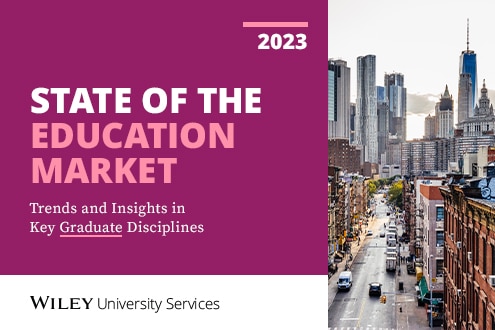
Colleges and universities sometimes hesitate about offering programs with fieldwork requirements in the online format. While they may offer such programs on campus, the prospect of coordinating fieldwork for students outside of their local area, where institutions do not have an existing network of fieldwork sites, can be challenging. It’s true that field placements for online students require a significant amount of investment in advance planning and ongoing support to ensure that students complete field hours successfully. Yet with the right type of planning, the effort is well worth it, offering significant benefits to both students and higher education institutions.
Programs such as master’s degrees in social work, public health, and education, as well as bachelor’s degrees in nursing, have fieldwork requirements built into them to ensure that students gain practical skills and can apply what they have learned in a real-world environment. By offering these programs online, higher education institutions can benefit from students’ fieldwork assignments, especially when they take place outside of the schools’ immediate area:
- Schools can have additional exposure and representation in areas where their brand may not be well known, increasing their reach and building a national presence online. This can be especially significant for small, regional schools.
- By the same token, expanding the locations of fieldwork sites increases opportunities for referrals: student(s) will spread the word about the school and associated program(s).
- Greater enrollments to online programs can result in additional resources being allocated to the program or school.
Overcome Obstacles Using the Following Framework
If your institution is considering offering any of its programs with required fieldwork in the online format, refer to the framework below outlining considerations and strategies for the planning, execution, and maintenance stages to anticipate and overcome potential obstacles.
ENSURE ADEQUATE STAFFING
IDENTIFY AND BUILD CONNECTIONS WITH FIELDWORK SITES
PLAN AHEAD FOR THE AFFILIATION AGREEMENT PROCESS
BE AWARE OF THE SPECIFIC NEEDS OF ONLINE STUDENTS
If your institution is interested in offering programs with fieldwork requirements online but isn’t sure it has the resources, capacity, or expertise to do so effectively, we can help. We’ve assisted many higher education institutions with developing a plan to support students in securing field placements for their online programs.
To learn more about other commonly asked online learning questions, check out our resources page for additional suggestions and information.

















